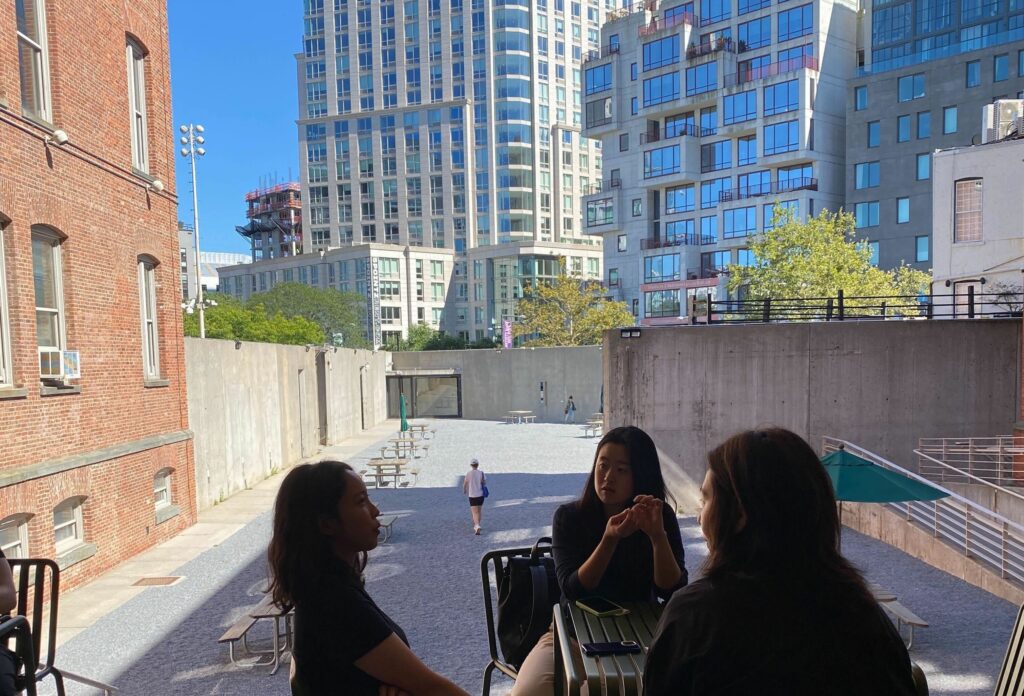With most classes taking place in the evening, many Interaction Design students elect to freelance or work part-time while completing the MFA program. Second-year student Gene Lu shares his experience of applying what he learned in school to beyond the classroom walls, and how graduate students can benefit from working for a startup while in school:
In the summer of 2009, I quit my full-time web designer position at a B2B company and began preparing myself for the inaugural class in MFA Interaction Design at the School of Visual Arts. During that time, a friend asked if I would be interested in working part-time as an interaction designer in a startup company, DramaFever.com, which specialized in streaming Asian media online. With only a few freelance gigs paying my bills at the time, I decided to take the offer. The next thing I knew, like all startups, I was working with a handful of people out of an apartment in NYC.
The MFA program kept me busy. We were learning a ton of new material from some of the best talent in the industry. Halfway through the first semester, things started to click. I realized what I was doing at school applied to my work at DramaFever. Take for example, John Zapolski’s infamous question at our second Strategic Innovation class, “What is your competitive advantage?” For DramaFever, it was the only company in the States that had the licenses to stream specific Asian titles, whereas its competitors were doing it illegally. John’s class taught me how to better analyze companies to determine their probability of success. Strategies such as differentiation through design and fulfilling unmet needs (a majority of DramaFever’s viewers are non-Asian) all rang true, which further convinced me that I made the right decision to work in the startup.


DramaFever staff at the New York Comic Con, where they held a discussion panel on “Asian Entertainment Trends in American Pop Culture.”
Throughout the first semester, I began creating more effective storyboards and workflows for new site features (Fundamentals in Interaction Design); improved visual aesthetics for a better user experience (Communicating Design); and even had a hand in coming up with new features based on feedback from viewers. By the end of the first semester, traffic on DramaFever.com leaped from 3,600 to 11,000 unique visitors per day. Of course, it’s important to note that in addition to design, other factors such as content acquisition and marketing pushed the needle on the traffic.
By the time spring semester rolled around, I had incorporated data visualization to help users better understand their viewing habits on the site (Information Visualization); gained an understanding in decreasing bio-cost to create an improved viewing experience (Design of Systems); started to go through emails for qualitative feedback and data-gathering for persona creation (Research Methods); and paper prototyped a set of new features (Prototyping User Experiences).
As of November 2010, DramaFever has acquired on average, 30,000 unique visitors per day, which means almost a million unique visitors per month with an average of a 16% bounce rate (16 of 100 people have only viewed the homepage and left the site). Pretty darn good with respect to industry standards.
Some of you may be still wondering why you should work at a startup when going to grad school. I’m sure you have heard of the (lack of) success rate that startups tend to have, but who cares. Due to the volatile nature of startups, they are usually open and/or flexible to new ideas. Being students in an innovative program such as the MFA Interaction Design program, startups offer the opportunity to apply and structure what we’ve learned, outside the classroom walls. And who knows, if the startup does well, you’ll at least be set with a job after graduation.
–Gene Lu, Class of 2011


